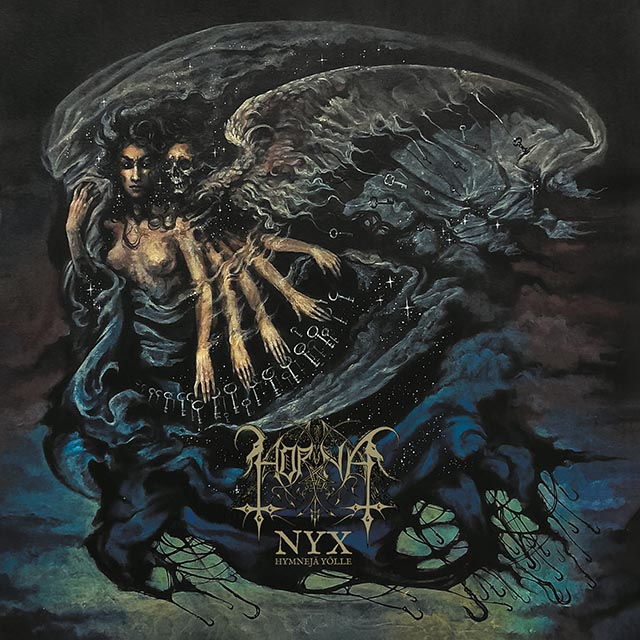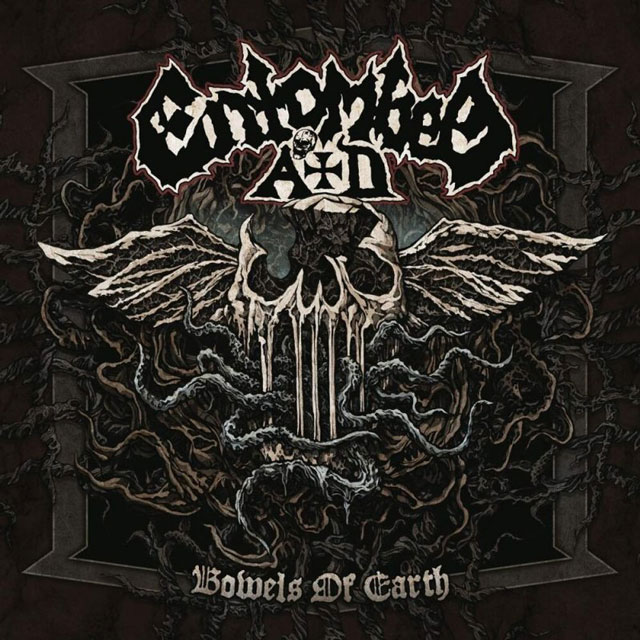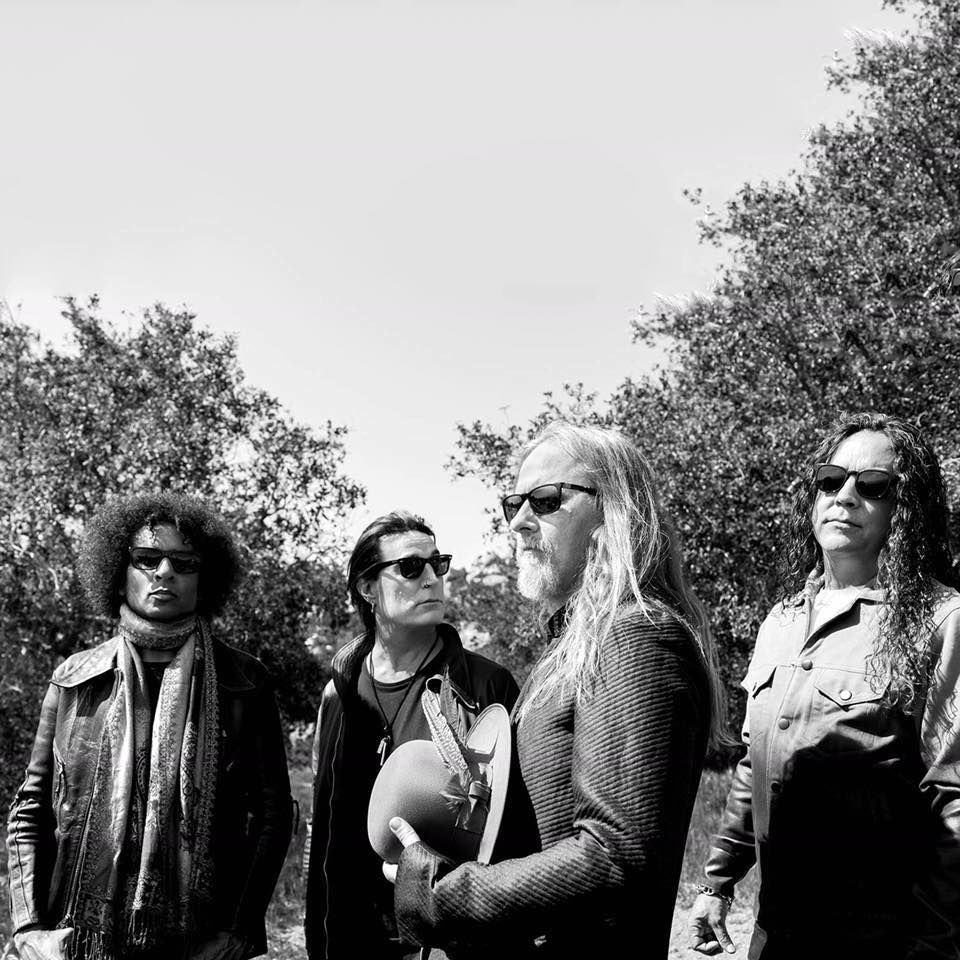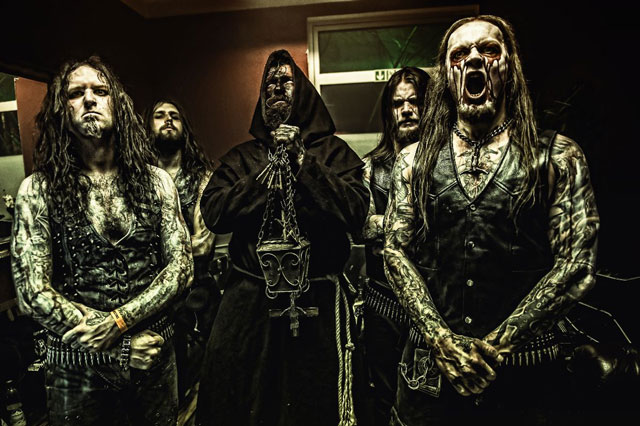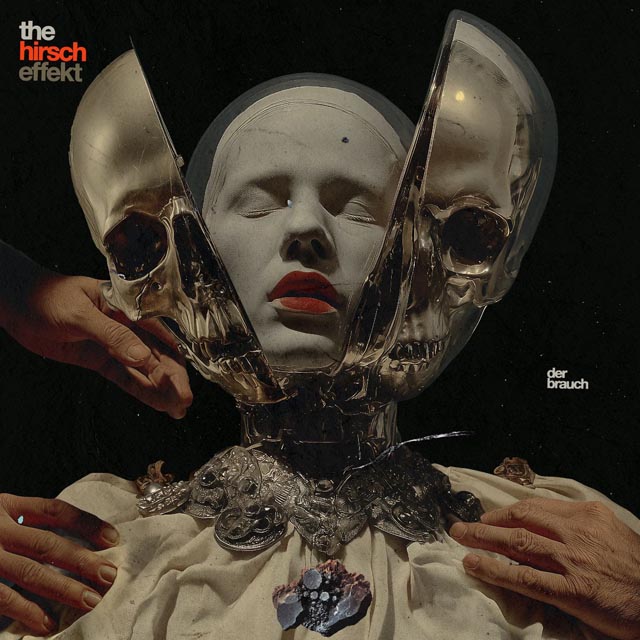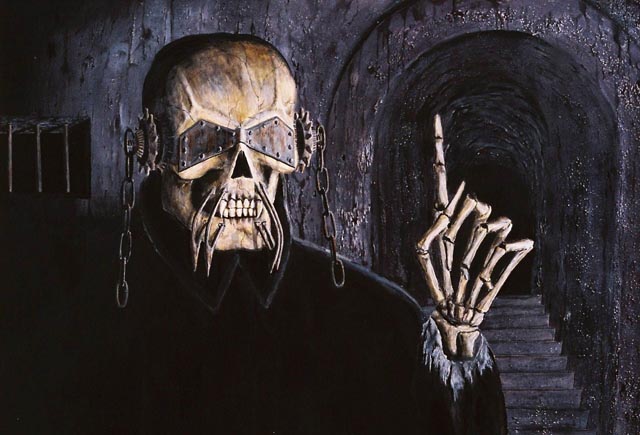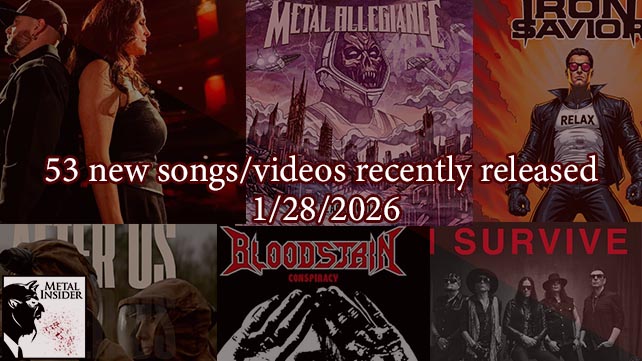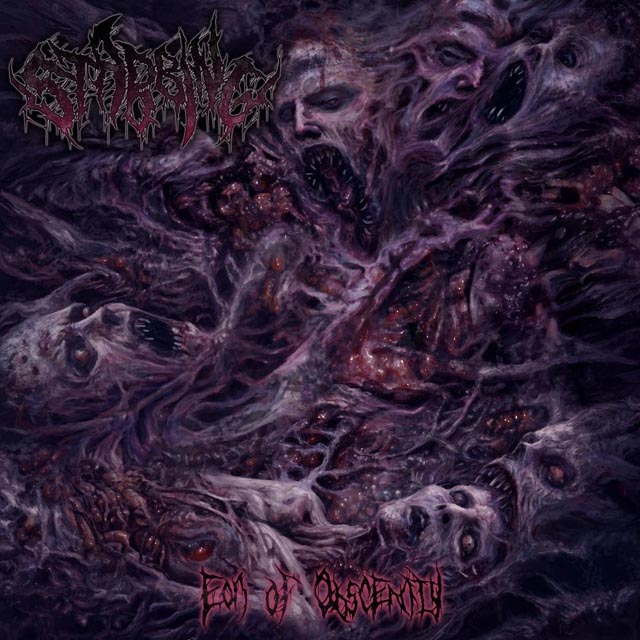“… at once snapt the bond of birth, the chains of the Light. Away fled the glory of the world, and with it my mourning; the sadness flowed together into a new, unfathomable world. Thou, soul of the Night, heavenly Slumber, didst come upon me; the region gently upheaved itself; over it hovered my unbound, newborn spirit.” ~ Novalis
Finland’s Horna has returned with Nyx (Hymnejä Yölle). These black metal stalwarts prove yet again why they have become a fan-favorite band. Indeed, this powerhouse has been slaying for 30 years already. Yet, on Nyx (Hymnejä Yölle), the eternally youthful Horna remains as orgasmically potent as ever, delivering supernatural levels of battering-ram force. May this divine offering inspire audiences to engage in truly blasphemous acts of passion!
A bizarre coincidence occurred: I had been reciting Hymen an Die Nacht by the noble and lofty German Romantic poet Novalis, with whom I quite unfortunately used to be obsessed, to myself as I was, in his words, “shedding bitter tears… dissolved in my pain… my hope… melting away…” And lo and behold: Those historic hymns are exactly what (Hymnejä Yölle) are loosely based on.
Although other metal acts have attempted similar feats, I cannot say that this is what I had expected from Horna, especially given Novalis’ Christian faith. Nevertheless, it testifies to the indisputable fact that Horna is an entity of superior intellect. Only an outfit of their caliber could properly pull off such an audacious undertaking and serve as a “messenger of secrets infinite.” Verily, it seems fitting that one of the greatest black metal acts should take on an author who penned some of the best lines ever committed to paper.
Nyx (Hymnejä Yölle) consists of five original compositions, which to be painfully clear are where the inspiration from Novalis lies, plus a reimagining of one of Horna’s old classics: Providing the finale is 2005’s “Kuoleva Lupaus,” as performed by ex-member Hex Inferi. A glorious and shimmering nod to the past, this time around, acoustic guitar mesmerizes on this number.
Eerie female backing vocals toward the close help ensure that the release concludes as gently as the start was aggressive and every bit as portentously. Hex Inferi’s low clean vocals do justice to the charm and character of the Finnish language, as do the poetic and pensive lyrics, which perfectly complement the rest of the record.
Interestingly, Shatraug told Metalbite: “Unlike most work in our history Nyx is an album of love instead of hatred, although one can not truly love without amplifying the whole span of emotions.” That said, whereas so many bands strive, in the utterly obnoxious of flattery, to be decorated with exclamations like “Brutal!,” “Lethal!,” and a slew of related synonyms,
Horna’s sonic weapons distinguish themselves by actually embodying these terms. This is the kind of music that you play to keep the posers away. Imbued with the genuine essence of spirituality and chaos, it brings a more sinister brand of heaviness than many might be accustomed to, one that slams down with the resoluteness of an iron curtain. Even the production is flawless, highly professional yet clearly still aimed at honoring the music’s rawness.
By virtue of its excellence, Nyx (Hymnejä Yölle) reminds me why I dislike most modern black metal, a playground dominated by plastic-sword wielding, forlorn tree-hugging pandas waiting in lurk to jump out at little children and steal their candy. And may they succeed so that, if even for a mere moment, they will have something with which to fill their intolerable traps, hence gifting us a relief from their superficial ramblings.
Indeed, the genre consists of so many vitamin-deficient and ironically obsequious Darkthrone clones hoping to receive festival invites, label support, participation trophies, back-pats, and grow their social media pages. In other words, such groups despicably seek acceptance, whereas Horna creates truly dangerous art with their own sound, which is distinctive yet still seems to epitomize the ideal in a variety of respects. The important fact of the matter is that, in authentic black metal fashion, Horna doesn’t give a damn whether you happen to dislike them for following their own path. After all, black metal should symbolize “Yet Another Step Closer to Total Fucking Ostracism.”
Indeed, the ridiculously charismatic Spellgoth is an outstanding frontman, one who engages in real acts of musical slaughter with the ruthlessness and unbroken conviction of a tank commander. Spellgoth’s raspy and pleasantly masculine vocals are aggressive and overpowering in a way that will activate your bestial impulses and raging lust. Here and there, you will catch some spectral echoes, howling, and gasps. In this respect and others, all is executed with perfect authority and nothing is overdone. As exemplified by the scorching vocal supremacy, Horna is fiery, yes, but obviously also frostbite-inducing, chilling to the core.
Thus, Nyx (Hymnejä Yölle) brings me back to St. Petersburg with its vanquishing gusts of wind and hail, not to mention its ghastly concrete and steel buildings juxtaposed with older, traditional Western beauty, erected at the cost of spilled blood. As a composer, Shatraug seamlessly mixes majestic qualities into his mostly merciless sonic war zones, enlivened by catchy melodies and effective tempo changes.
There is a special moment, for instance, on the first hymn when the pace slows and LRH’s drums pound with a certain, dare I say, shamanic allure. At the start of the second hymn, we realize just how golden and victorious Horna can sound. Shatraug’s compositions for the record range from five to nearly nine minutes. They contain some material dating back years, all seamlessly woven into the resulting nearly 44-minute triumph.
Shatraug masterfully works his dark magic on guitars along with Infection. Naturally, VnoM and LRH deliver equally commendable performances on bass and drums respectively. With the entirety of this brigade of demonic beings in assault mode, this reinvigorating title has an undeniable physical energy and might have the unwanted effect of making you want to dance at times.
In fact, do not be surprised if the third hymn makes you oddly horny. Beware: Ironically, it just might amount to a good opus for the bedroom, depending on your preferences, so don’t be caught with empty pockets. Carry protection as a precaution. The music furthermore occasionally lends a feeling that, dare I say, might be described as exotic.
Compatible with vodka, Nyx (Hymnejä Yölle) will most definitely translate splendidly into live settings like Steelfest, where Horna celebrated their anniversary this year. Although Horna’s members have been with the group for varying periods of time, they are all obviously highly accomplished and esteemed veterans within the Finnish scene. On Nyx (Hymnejä Yölle), their remarkable chemistry and bond as brothers with a unified vision are more than evident. Yes, Spellgoth and LRH are biological brothers: Be sure to either explore or revisit their delightfully bizarre work together in Trollheims Grott.
At this point, it becomes of the utmost importance to note that black metal enthusiasts will remember that three of Horna’s members — Spellgoth, Infection, and LRH — teamed up with Darvaza’s Wraath to present us with Night Shall Drape Us’ debut, Lunatic Choir, in conspiracy with Season of Mist thus April! If you haven’t already enjoyed that related sonic achievement, please do! Also, check out my discussion with Wraath about it. We spoke for the first time for my now-dead MetalSucks column, and I always wanted to deliver a Horna convo to that audience as well, given the need for such a thing, but I digress.
In addition to that gem, releases by Terratur Posessions, Dead Flesh Stigma’s Necrocosmic Death Ritual, and offerings featuring Maxime Taccardi, Nyx (Hymnejä Yölle) represents one of the best black metal full-lengths of the year! Truly, from start to finish, Nyx (Hymnejä Yölle) amounts to a thoroughly convincing and cohesive album. Yes, by mere comparison, Horna lifts the Halloween-store cloak on the weak puppet-show antics of the sheep who have come to the black metal battlefield all too conspicuously masquerading as wolves. Like true love, Horna prevails no matter what.
(Note: The opinions contained within this review are solely mine, and I hope that readers will be willing to just accept my strong female voice. To any and all opposed to True Black Metal: I kindly and wisely advise you to pick up Novalis’ Heinrich von Ofterdingen — an astonishing tale about love and loss that will hopefully leave you transfigured and categorically unable to waste time on such petty preoccupations as attempting to slander a group of fine, scholarly citizens. Please do not perpetuate negative stereotypes about Americans by virtue of your ignorance concerning European music.)

